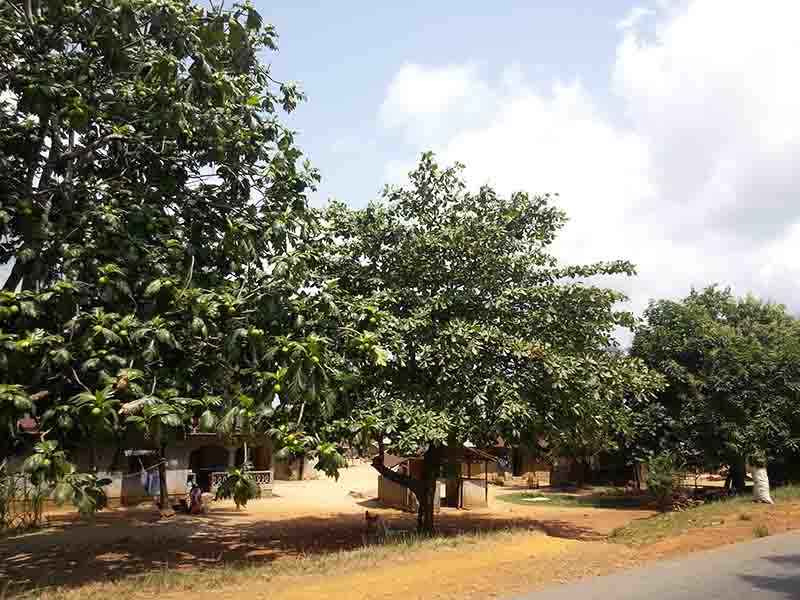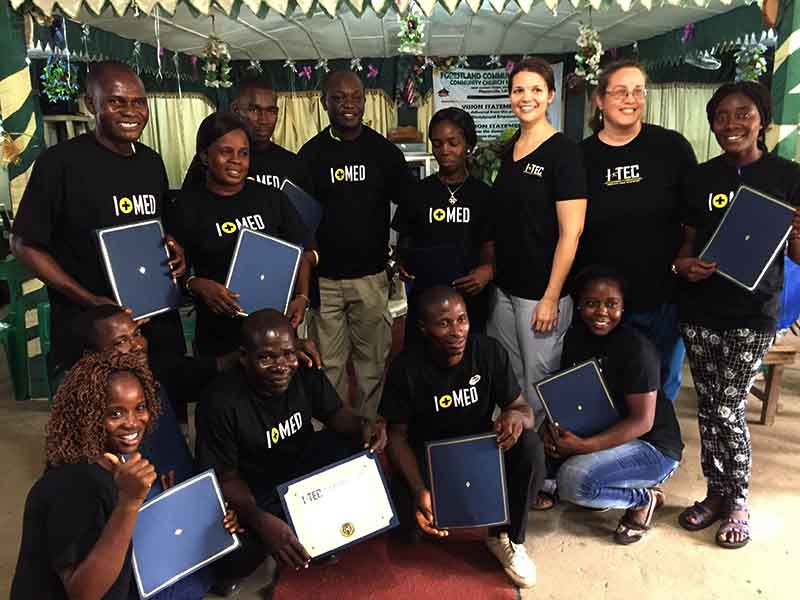The Great Privilege of Caring for Others | I-MED Liberia
"It is our great privilege to care for others because in doing so, we are essentially caring for Jesus Himself (Matt. 25:34-39)" - Heather Newcomer, RN
We rode along in silence in the back seat of the old truck. My face began to go numb from the constant wind but I didn't care, it felt good with the hot sun shining in through the open window onto my arms and face. The air was hot and humid and the vegetation abundant, green and tropical. The truck wove side-to-side like a needle and thread through the fabric of traffic. I was grateful I wasn't driving. I was again distracted by the scenery of people whizzing by me on both sides. Some were selling their wares along the side of the road, others fishing in ponds or simply relaxing and socializing. The meandering dirt roads branched off in every direction, fading into the distance with their terra-cotta clay lined with lush green grasses and palm trees. This was no concrete jungle. This was the land of Liberia, West Africa.
We were on our way back to the Monrovia airport. Our team had arrived the day before, but most of our luggage had not. I didn't mind the extra drive back. It was relaxing and meant I could sit back and enjoy the countryside scenery again. I recalled the events of the previous day:
We rode along in light-hearted chatter from the airport on our way to Paynesville, Liberia. The scenery was familiar, much like other countries we've been to, though we noticed animals were scarce. We would find out later the 12-year civil war had wiped the country clean of its livestock. But it was a mystery at the moment and I wondered silently about their absence. We had no idea what lay ahead of us for the next several days, but certain that God had a marvelous plan in it all. Our small talk faded off as we grew tired and sleepy.
 The next thing I knew I was being jostled awake by the movement of the van on what was obviously no longer a paved road. The vehicle came to a stop at Forestland Community Church. We arrived, weary and barely awake, to many welcoming faces. This would be our home for the next 8 days. We could hear the generator running in the background, powering the lightbulbs hanging from the ceiling of the green and yellow decorated church. After greeting, introducing and unloading our minimal luggage, the team sat down to our first West African meal. Actually, I should call it a feast. Thelma, the Pastor's wife and one of our cooks, uncovered each dish one by one - fried chicken, rice, stew, grilled fish, plantains, fresh fruit and one or two other things I can't quite recall. It was a meal for the books. This was just a small taste of the hospitality we were to experience over the next week with these precious people.
The next thing I knew I was being jostled awake by the movement of the van on what was obviously no longer a paved road. The vehicle came to a stop at Forestland Community Church. We arrived, weary and barely awake, to many welcoming faces. This would be our home for the next 8 days. We could hear the generator running in the background, powering the lightbulbs hanging from the ceiling of the green and yellow decorated church. After greeting, introducing and unloading our minimal luggage, the team sat down to our first West African meal. Actually, I should call it a feast. Thelma, the Pastor's wife and one of our cooks, uncovered each dish one by one - fried chicken, rice, stew, grilled fish, plantains, fresh fruit and one or two other things I can't quite recall. It was a meal for the books. This was just a small taste of the hospitality we were to experience over the next week with these precious people.
We awoke reluctantly the next morning. The clock said 8:30 AM but my body said 3:30 AM. Luckily church didn't start until 10 so we could sleep in a little, hopefully having a chance to adjust to the time change. Sleepiness faded away as the church service began. The choir and worship leader warmed up by singing songs that were familiar to us. Then they began to worship as God intended Liberians to worship - in the passion and beauty of their culture. The drum and sasa (a shaker made of a dried gourd with beads on the outside) rhythms were quick and it seemed their feet moved even faster as they danced and celebrated life and joy in Christ. I tried to keep up as best I could. Though I admit I could use a few dancing lessons. But either way, the joy was contagious! Their thankfulness spilled out like Mary's perfume on Jesus' feet and they gave of themselves to the Lord. Not just their hearts or their minds but their physical bodies too. Like Miriam dancing with her tambourine by the Red Sea, it was a celebration because they had experienced God doing good things in their midst! Many of them had lived through the war and the Ebola crisis just a couple years prior. There is much to be thankful for. I knew after that service - this is going to be a good week.
"Like Miriam dancing with her tambourine by the Red Sea, it was a celebration because they had experienced God doing good things in their midst! Many of them had lived through the war and the Ebola crisis just a couple years prior. There is much to be thankful for."
I came back to present when we arrived at the airport again. Thankfully we got most of our luggage and returned to the church with little difficulty. The next day would be the start of the training.
As we made introductions at the beginning of class the following morning, it was clear we had a great group of enthusiastic and passionate learners. There were a few laughs as we tried to learn the typical Liberian greeting, which includes four different types of handshakes and a finger-snap at the end. Funny how we always think our personal way of doing things is the "normal" way. We showed them how North Americans shake hands and one person asked, "That's all you do? Just that one shake?" Implying that certainly wasn't enough to acknowledge someone in a greeting. We agreed.
Throughout the week we taught on many topics - hygiene, water purification, vital signs, wound care, burn care, respiratory problems, malaria, pain medicines, bleeding & shock and a few other practical skills. The I-MED class can get a little dramatic at times while we practice possible scenarios, which is always our favorite part. If someone visited for a short time they may have mistaken our class for a Hollywood acting class as we portrayed patients with agonizing bleeding neck wounds, eye puncture wounds, and patients in shock. They would inevitably need to be transported for care, in which case the guys in the class picked up the entire bench/desk combination that the "patient" was lying on and carried it across the room to the "hospital". We can happily report that every patient lived and every injury was cured by the time we left class for the day.
One of the topics that continually came up throughout the week was how we are to treat other people and especially those who are coming for some type of medical care. The class shared with us how some medical professionals are not always caring toward their patients. So it begged the question - how are we treat those who are under our care? We talked a lot about how Christ treated others and how that's probably one of the most important things about this training - that Jesus is seen in whatever you do and those who come to you can sense God's love in the way you care for them. It is our great privilege to care for others because in doing so, we are essentially caring for Jesus Himself (Matt. 25:34-39).
 By the end of the week, we had a class full of ministers of the Gospel who had all passed the I-MED training. We also had a couple instructors (us) who had learned from the class as well. We are always amazed that we seem to learn as much as we teach wherever we go. The passion for Christ that had motivated the founding pastors to start this ministry had certainly filtered down into the rest of the church and was evident not only in the church services but also in the classroom. They are giving their lives to fulfill the mission statement hanging at the front of the church and deeply embedded in their hearts: "Win the lost, deliver the demonic oppressed, develop, empower and release them for ministry/mission." May we all be personally gripped by this same mission and develop the perseverance to live it out.
By the end of the week, we had a class full of ministers of the Gospel who had all passed the I-MED training. We also had a couple instructors (us) who had learned from the class as well. We are always amazed that we seem to learn as much as we teach wherever we go. The passion for Christ that had motivated the founding pastors to start this ministry had certainly filtered down into the rest of the church and was evident not only in the church services but also in the classroom. They are giving their lives to fulfill the mission statement hanging at the front of the church and deeply embedded in their hearts: "Win the lost, deliver the demonic oppressed, develop, empower and release them for ministry/mission." May we all be personally gripped by this same mission and develop the perseverance to live it out.

